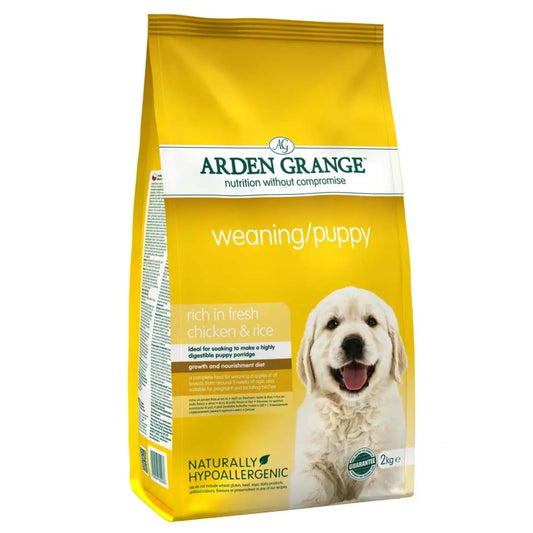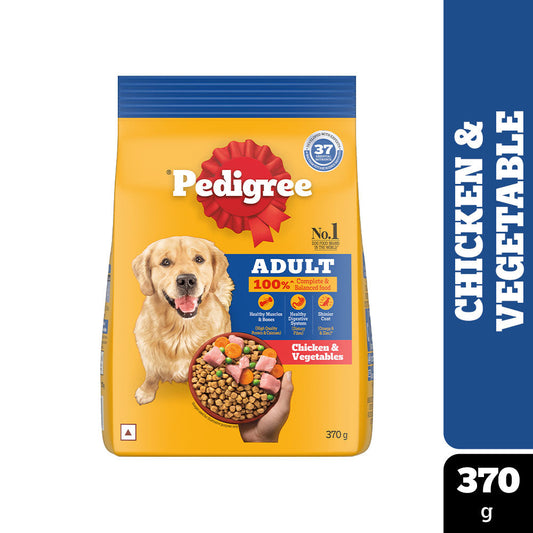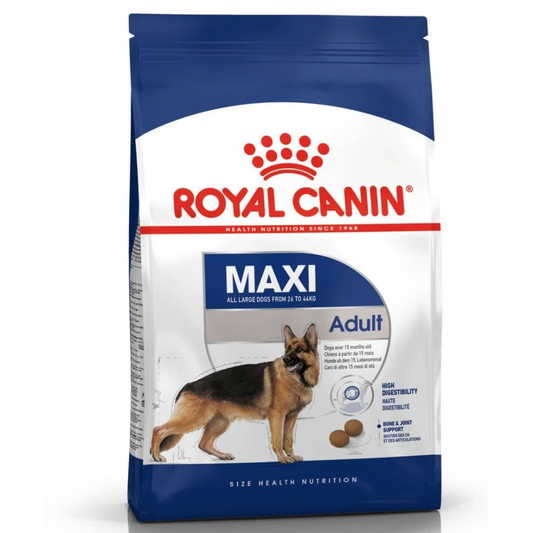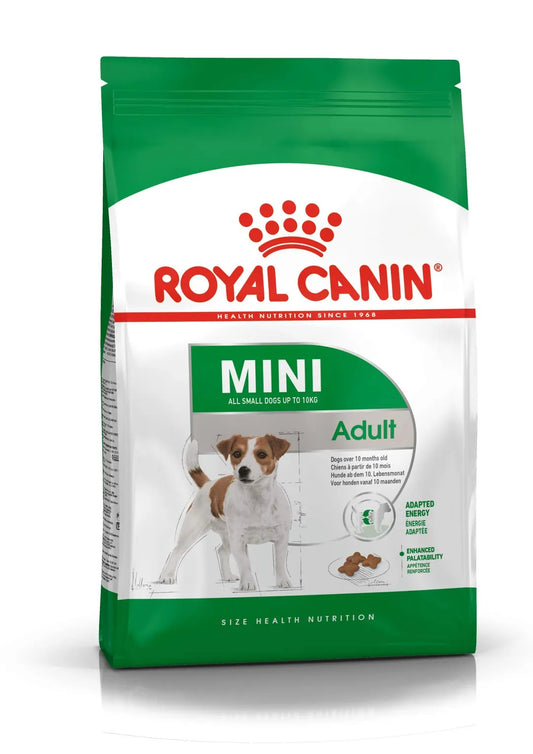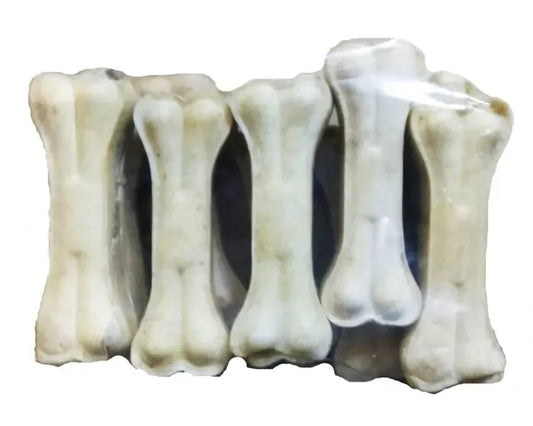You will not be allowed to compare more than 4 products at a time
View compareBoxer
Average sizes and life expectancy of the breed
25-32 cm
25-32 kg
10-12 years
Germany
Pure
Working
Characteristics of the Boxer
Boxers are happy, charismatic and an energetic dog breed who were known for their great work ethic in ancient times. They are alert and highly enthusiastic showing great curiosity for every task they do. Boxer dogs love to get affection from both adults as well as children and are also fearless and protective of their families making them great family dogs. Originally, they were bred to play the role of a medium-sized guard dog, but today they excel a lot as companion dogs. These dogs love to play and most of the time, they forget their size becoming clumsy, friendly and super funny.
Cota
Boxers have short, hard and a glossy coat. The space between one hair and another is almost zero, yet the hairs are still exceedingly low in relation to the skin. The most common colours are fawn or tawny and they usually have very discreet stripes along the body, especially on the back. Several colours are accepted by the breed standard, and several of them have a white "glove" on all paws. The best part in owning a Boxer is that these dogs are low-shedders, in comparison to most other dog breeds. But Boxers do shed! You can expect them to shed quit a bit during the springs and hence, their brushing should be done once or twice weekly. Also, be vigilant of parasitic invasion as they can cause irritation and allergies in Boxers. Feed them a diet having Omega fatty acids, as it maintains excellent skin and coat health in them.
Recommended Treats for Boxer
Arden Grange with Chicken Weaning Puppy Food 2 Kg
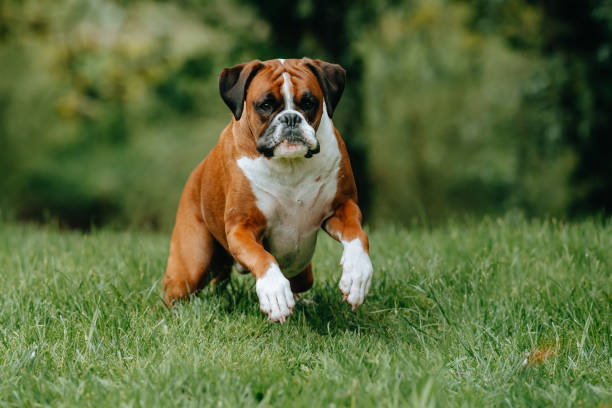
Recommended Treats for Beagle
Recommended Treats for Beagle
Arden Grange with Chicken Weaning Puppy Food 2 Kg
Grooming Your Boxer
As Boxers have a short, tight fitting coat, they don't need much grooming as compared to other dog breeds. But that doesn't mean Boxers do not shed at all. They will shed a bit of hair all around the year, though it may increase in summers. Still, the hair fall can be reduced by regular brushing and combing. Regarding their nutrition, When it comes to combing their hair, a bristle brush with firm bristles is an ideal choice for a short coat like Boxer's. They are perfect for removing loose and dead hair and will leave your Boxer look healthy and shiny. As for bathing, you can bathe these dogs only once in every 3 weeks, since they don't get dirty or smelly as quickly as other long-haired breeds. Regarding nutrition, look for a diet having essential fatty acids, as it will help in keeping their skin and coat healthy as well as shiny,
Taking Care of a Boxer
As Boxers have such a short coat, they can be bothered when the hair comes off the skin, and weekly brushing is ideal for your them. In spring, when the hair changes, brushing should be done at least twice a week. Boxer dogs can have severe skin allergies, so it's always good to watch your four-legged child's ears, paws, ears, snout, and eyes. If they present redness or bad smell, you should consult a veterinarian as soon as possible, so that an apt treatment is indicated.
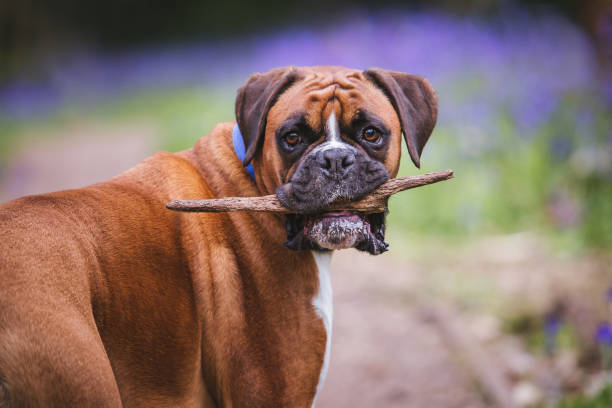
Health
Even though they come under large breed category, Boxers are not "outdoor dogs." Their short noses and short hair make them uncomfortable in hot and cold weather, and they need to be kept as house dogs. Despite this, they are extremely playful dogs who would like to have a very large space to run and jump. Boxers are highly hygienic dogs who don't like dirt, and they can even do a self-cleaning, like cats do. Due to this, baths can be more spaced. The Boxer's fur is short, so a brush a week will help to eliminate dead hair (this can be done with gloves, for example, and not necessarily with brushes). The nails of dogs of this breed have a tendency to grow faster and if not cut often enough, it can even hurt the pads of the paws. Also, as they like to jump around while playing or to greet someone who arrives, it's good to keep their nails trimmed to avoid possible scratches. Brushing their teeth is also very important to prevent the accumulation of plaque (tartar), which is common in brachycephalic breeds. By genetics, it is common for boxers to suffer from tumours in different parts of the body. Always be aware of changes in behaviour, appearance of nodules, lack of appetite, etc. Seek help from a veterinarian whenever you notice something different in your furry. The breed has a tendency to develop cancer.
Curiosities
Boxers are direct descendants of BullenBeiser, an extinct dog breed who were used to hunt wild boar and stag. Brandy, the boxer dog held the world record of having the longest dog tongue among all dogs in the world. Her tongue measured a whopping 17 inches.(43 Centimeters) Boxers literally box. The breed has a propensity to stand up on its back legs and kick out its front paws, just like a human Boxer does. They have one of the longest puppyhood time among dogs. It takes a Boxer 3 years to reach adulthood. Boxers are excellent service dogs because of their high alertness and intelligence.
Intelligence
Although Boxers are very smart, training is essential for the proper development and socialization of this breed. They can also hurt children without intending to do so, because of it's huge size and playful nature. To teach a Boxer its limits, it is necessary to educate it with patience, consistency and love. And remember when training any dog, reward methods will always work best They will learn more with with a good treat or a caress, than with screams or punishment - which can even cause trauma to the dog. As they are energetic dogs, it is recommended to walk your dog for a few minutes before teaching tricks, so that he is not too agitated with the learning process. They can be a little stubborn at times, but with a lot of patience and persistence, he will focus and learn the commands.
Temperament
As we've said several times, the biggest characteristic of a Boxer is its playfulness! He loves to play with his family and sometimes even forgets his size when running and jumping. It's a dog that doesn't normally bark much, but in moments of euphoria, he likes to show his happiness through good and loud barks! The Boxer is not a pet to be left alone, as he can feel sad and bored. Hence, it's suggested that family members always be with these dogs, so that they don't become destructive (like, eating the wrong things,). Boxers adapt very well to the family routine, are friendly with children and can sometimes be more friendly with other cats than with other dogs. It is necessary to socialise the Boxer from the first weeks of life, as it is protective and territorial. You should also know that Boxers can become somewhat anti-social when it comes to wanting to protect its humans. Hence, introducing several people and other animals is essential. for him to grow calmly.
Lifetime
The life expectancy of a Boxer is eight to ten years when properly cared for.
Frequently Asked Questions
Are Boxers good for first time owners?
Yes absolutely. Boxers are a low-maintenance breed who are also extremely devoted to their owners. They are also highly intelligent which makes it easier for owners to teach tricks and commands. This makes them ideal dogs for first time owners.
What is a Boxer’s behaviour like?
On the outside, Boxer may look like an aggressive dog breed, but in reality, they are gentle, playful and are loyal family companions. They exhibit puppy-like enthusiasm all through their lives. Unlike other guard dogs, they have a slight tendency to get friendly with strangers. Nonetheless, they have a strong protective instinct to protect their family if they perceive any threat.
Are Boxers good guard dogs?
Yes absolutely. Boxers have a protective nature which makes them tackle any external threats fearlessly. Besides, the ancestors of this breed were working dogs who were also made to guard cattles.
What should I feed my Boxer puppy?
Being a large breed puppy, a Boxer’s calorie requirement is very high. A puppy Boxer’s diet should include nutrients like protein, fats, fibres etc for building strong muscles and to maintain good energy as well. Some of the best foods for Boxer puppies are Royal Canin Boxer Junior, Royal Canin Maxi Puppy, Fidele Large Breed Puppy, Pedigree Pro Large Breed Puppy etc.
Can I feed homemade food to my Boxer dog?
Although home-made foods are safe for Boxers, it isn’t recommended for them. This is because these foods often lack the vital nutrients that Boxers require to maintain excellent health as well as immunity. Besides, home-made foods also don't guarantee digestibility and a high nutrient absorption., whereas an exclusive breed diet always does.
Do Boxers shed?
In spite of having a short-haired coat, these breeds shed quite a bit during the spring. Yet, weekly brushing their coat with a bristle brush can reduce the hair fall tremendously. Feeding the Boxers a diet rich in Omega fatty acids can boost skin and coat health and also eliminate excessive hair fall.
How much exercise does this breed need?
The energy requirements of Boxer puppies and adult Boxers have a huge difference. Adult Boxers are strong, muscular and sturdy and therefore require a healthy amount of exercise. On the other hand, puppy Boxers are a little fragile and only need a minimal amount of exercise as they are still in the developing phase. Also, walking is ideal for this breed. Adult Boxers need 30 - 45 minutes of walking every day, whereas puppy Boxers require walking only for 20 minutes
Do Boxers bark a lot?
The energy requirements of Boxer puppies and adult Boxers have a huge difference. Adult Boxers are strong, muscular and sturdy and therefore require a healthy amount of exercise. On the other hand, puppy Boxers are a little fragile and only need a minimal amount of exercise as they are still in the developing phase. Also, walking is ideal for this breed. Adult Boxers need 30 - 45 minutes of walking every day, whereas puppy Boxers require walking only for 20 minutes.
Are these dogs good with children?
Yes they are. Boxers are kind, affectionate dogs who make great family dogs and are also ideal playmates for children. However, there is a chance they may knock children out of excitement, so your supervision is needed during their playing session.
Are these dogs good apartment dogs?
Given that you can provide them with sufficient exercise and mental stimulation daily, Boxers can do well in apartments. Remember that Boxers are working dogs who need at least 2 two hours of exercise daily.
How often should I bathe these dogs?
Boxers don’t need frequent baths unless they get dirty or smelly. Bathing them once every 2-3 months is enough to keep their skin and coat healthy.
Our team is available at (Mon-Sat, 10 AM to 7 PM): 87440-12035/53 (sales) 87440-12036 (support) support@petsworld.in



